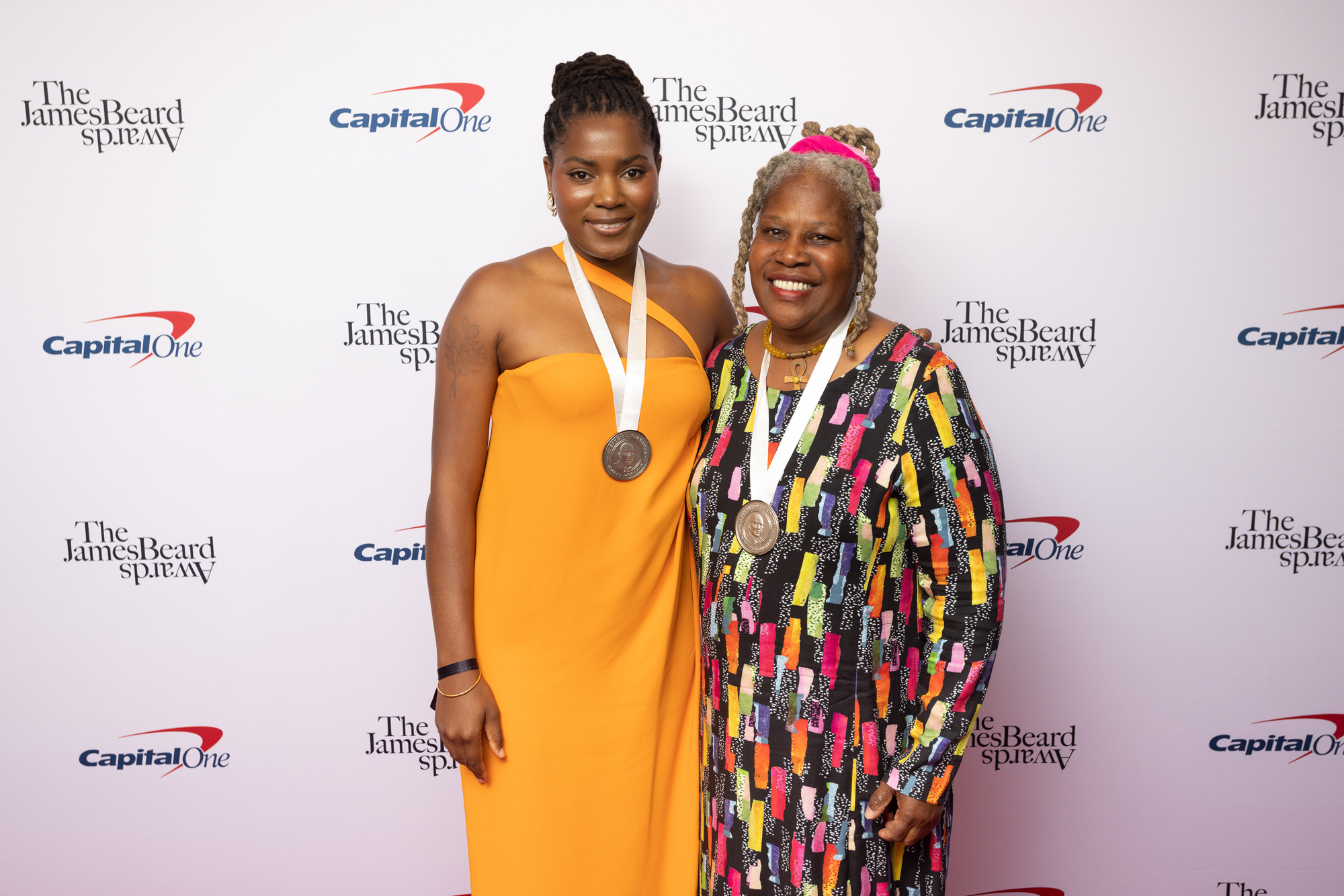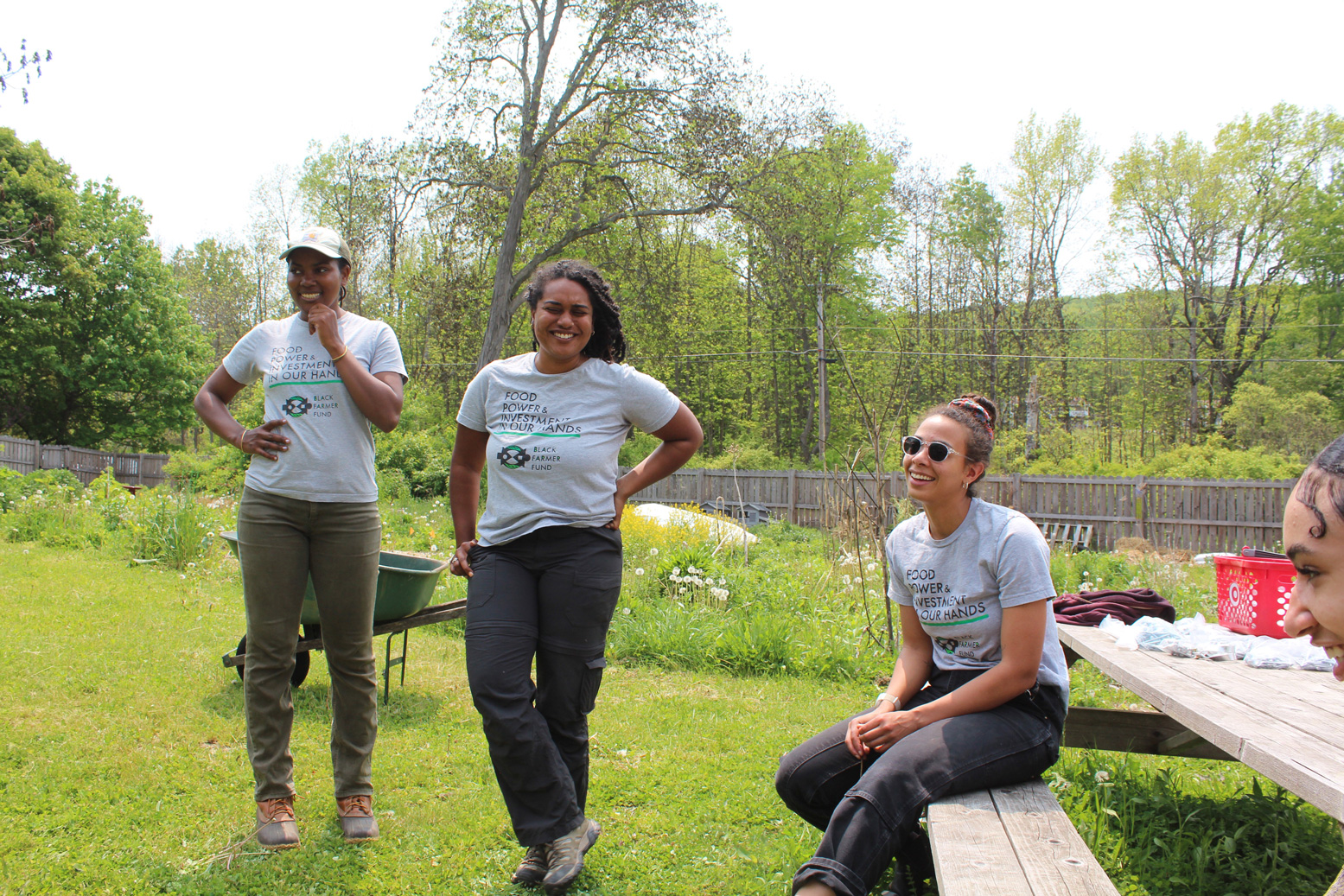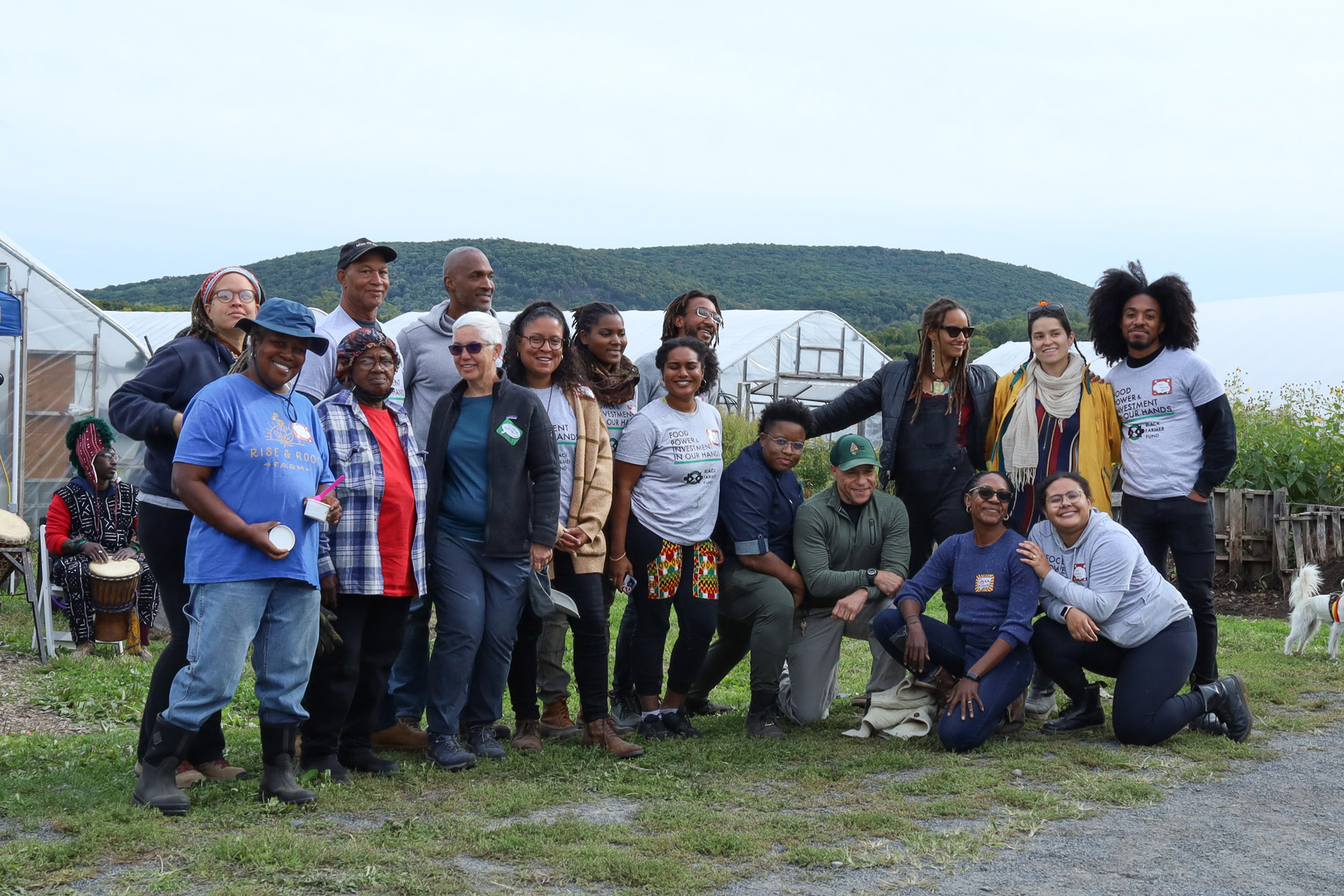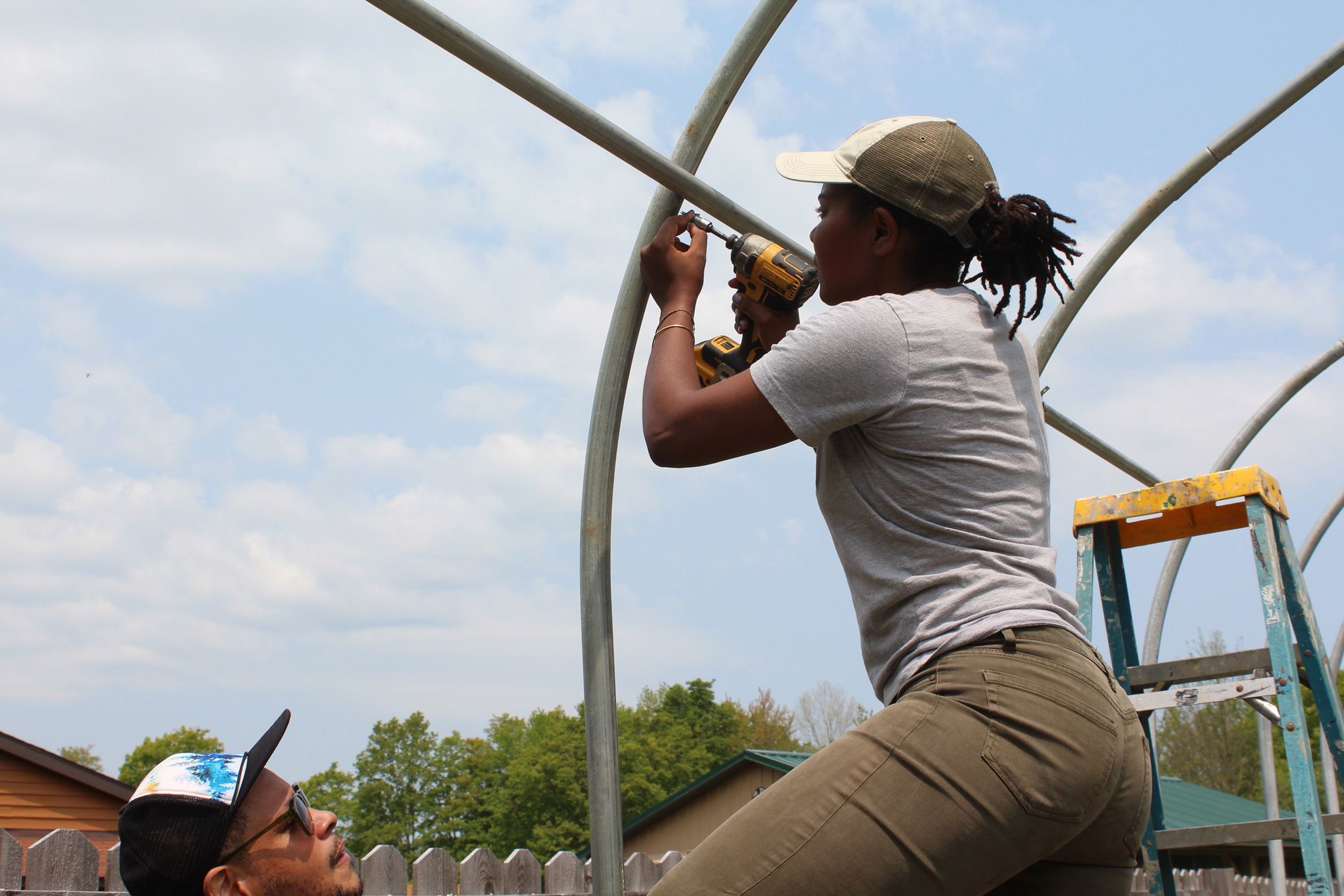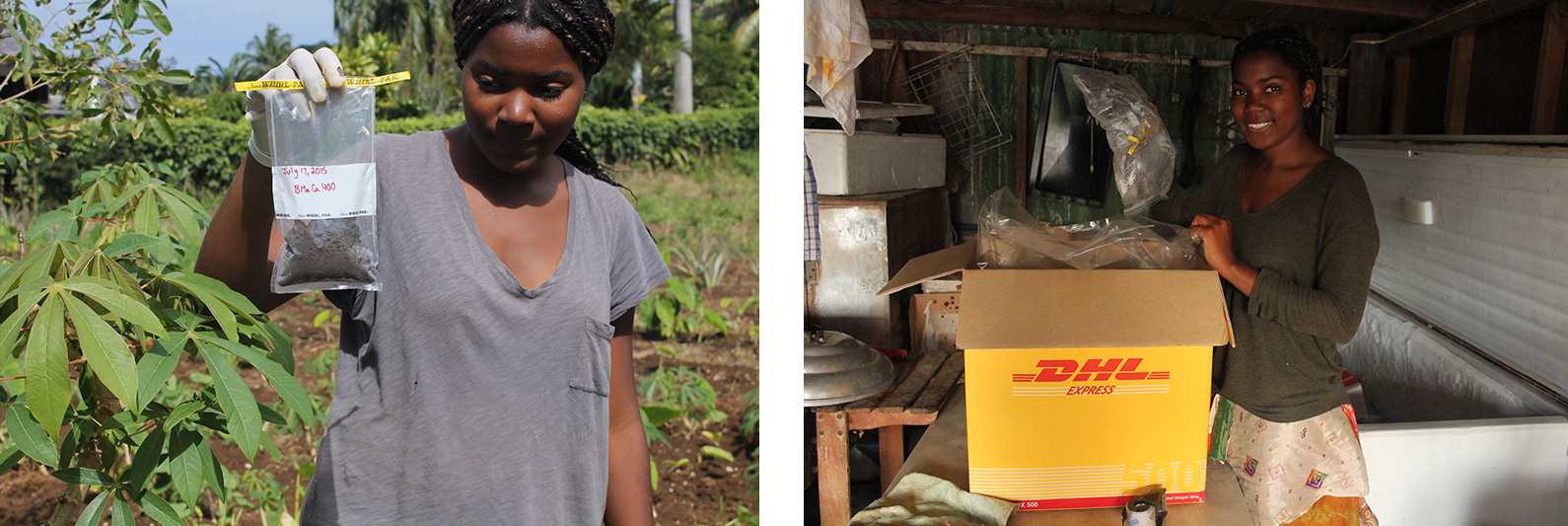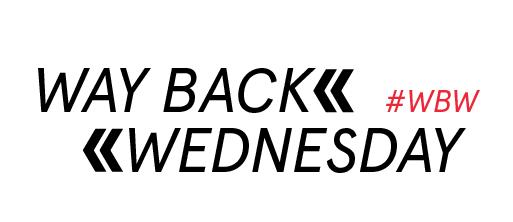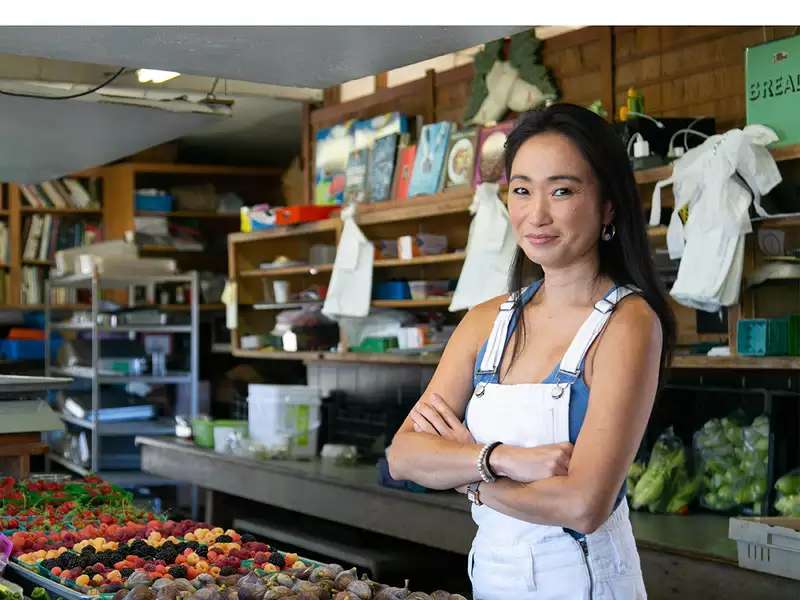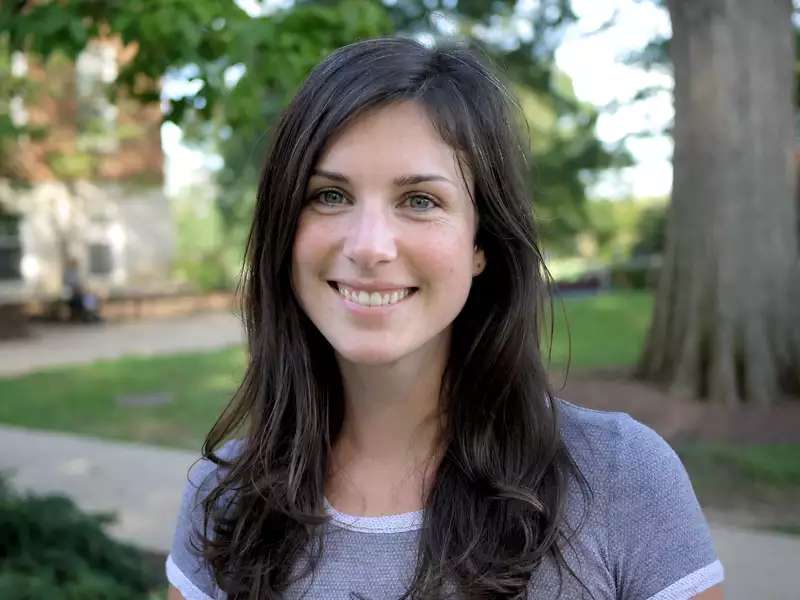In March, Olivia Watkins ’16 was at her Connecticut home when she received an unexpected email from Katrina Leung, director of the James Beard Foundation Awards, notifying her of “some exciting news.” Later that week, on a phone call with Leung, Watkins learned that she and her colleague Karen Washington were receiving the 2023 Humanitarian of the Year award, “given to an individual or organization working in the food realm who has given selflessly and worked tirelessly to better the lives of others and society at large.”
The two women — who are co-founders and co-executive directors of the Black Farmer Fund (BFF), a nonprofit that invests in Black farmers and food businesses in New York to create sustainable and equitable food systems — were thrilled.
“Being recognized as a humanitarian, which objectively is someone who dedicates their time to causes that they care about, was internal validation for me to keep going on this path because I am making an impact on things that I care about but also people outside of myself,” said Watkins.
The Heart of a Humanitarian
Watkins first learned about the prestigious culinary honor when her now-colleague Karen Washington received the James Beard Leadership Award in 2014 for establishing urban gardens and promoting green jobs and healthy diets in Bronx neighborhoods. Since then, Watkins has admired how Washington uses her platform to champion causes she cares about — an example Watkins hopes to replicate in her own life.
“Our investment committee is all farmers, organizers, other business owners, volunteers in the environmental space, and they're the ones who are making the decisions, which helps to build trust because the power is distributed,” said Watkins.
Winning the James Beard award is not the only accolade Watkins has received — in 2021, she was recognized on the Forbes 30 under 30 Social Impact list for North America and The Grist 50. But gaining recognition has never been her top priority. “Awards and prestigious institutions don’t hold as much weight as what people are doing with them,” she said.
With or without an award, Watkins is intent on accomplishing her goal to grow the nonprofit that she started in 2019 and to prioritize the causes that matter to her, such as food justice, sustainable agriculture, and climate change.
Watkins recalls that when the Black Farmer Fund was getting off the ground, the co-founders asked farmers and business owners what they needed most. The overwhelming response was a financial institution that they could trust. “Listening to the community and actually responding to that is ingrained in how we operate,” said Watkins.
During the Black Farmer Fund’s pilot funding round in 2021, $1.1 million was raised, which was disbursed to eight Black-owned businesses and farmers. The BFF was also able to support an additional 17 initiatives with rapid response funding. The nonprofit is now on track to raise $20 million — money that Watkins hopes to use to support 30 new businesses.
The Barnard Beginning
Watkins’ path to the James Beard award started in large part in 2012, when she first stepped into Krista McGuire’s lab in Altschul Hall as a first-year. At the time, McGuire was studying old-growth forests around the world, and Watkins watched in admiration as the biology professor circled in and out of places like Indonesia, Puerto Rico, and Suriname, all while publishing research papers at what seemed like warp speed.
“Being in a lab where there was a woman leading was my first real example of women in leadership, especially in science,” said Watkins, who majored in environmental biology.
Watkins would end up spending four years, and every summer, working in McGuire’s lab analyzing global soil samples. It was during that time that she learned how to take charge of her own work.
“That was a really defining moment for me, where I was able to gain a sense of independence, resourcefulness, and scrappiness that ultimately I think led to me being an entrepreneur and starting [the Black Farmer Fund],” recalled Watkins.
During her senior year, Watkins raised $10,000 for an independent project in the Cook Islands that served as her senior thesis. Her project, which she worked on in McGuire’s lab, examined how soil microbes in the Cook Islands were responding to a transition to more organic farming practices.
After graduation, Watkins leveraged her environmental biology background for roles at Kahumana Organic Farms in Hawaii and at Soul Fire Farm, an Afro-Indigenous community farm in upstate New York. In 2019, inspired to work on a more systemic level to implement change in the food system, Watkins founded the Black Farmer Fund.
The Land Steward
In addition to her work at the BFF, Watkins sits on the boards of Iroquois Valley Farmland REIT and Sustainable Agriculture & Food Systems Funders (SAFSF).
“[The award] was kind of the culmination of all these different experiences that I had not only at Barnard but also post-Barnard,” she said.
Being able to dedicate her creativity and STEM knowledge to solutions that benefit many is what inspires Watkins to keep her hands dirty. It’s also a bonus that the career she wished for while at Barnard is exactly the work she gets to perform every day — to make an impact on the things that concern her and on people she may never know or meet.
Her advice to Barnard students: “Figure out something you want to immerse yourself in, identify people who are already doing that, get involved in the work that they’re doing, and learn from them.”
